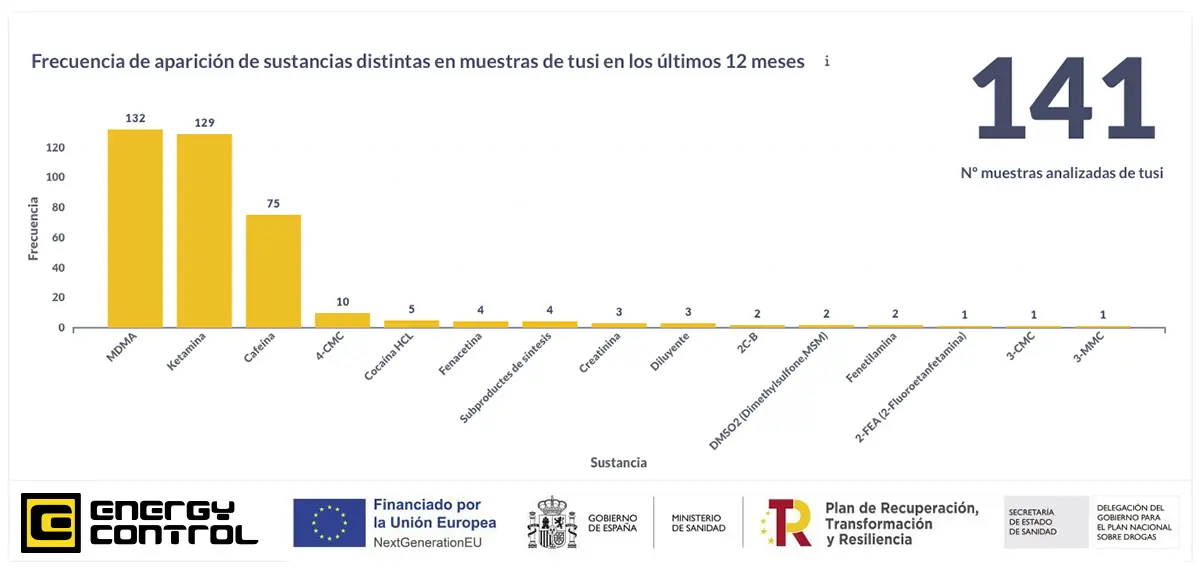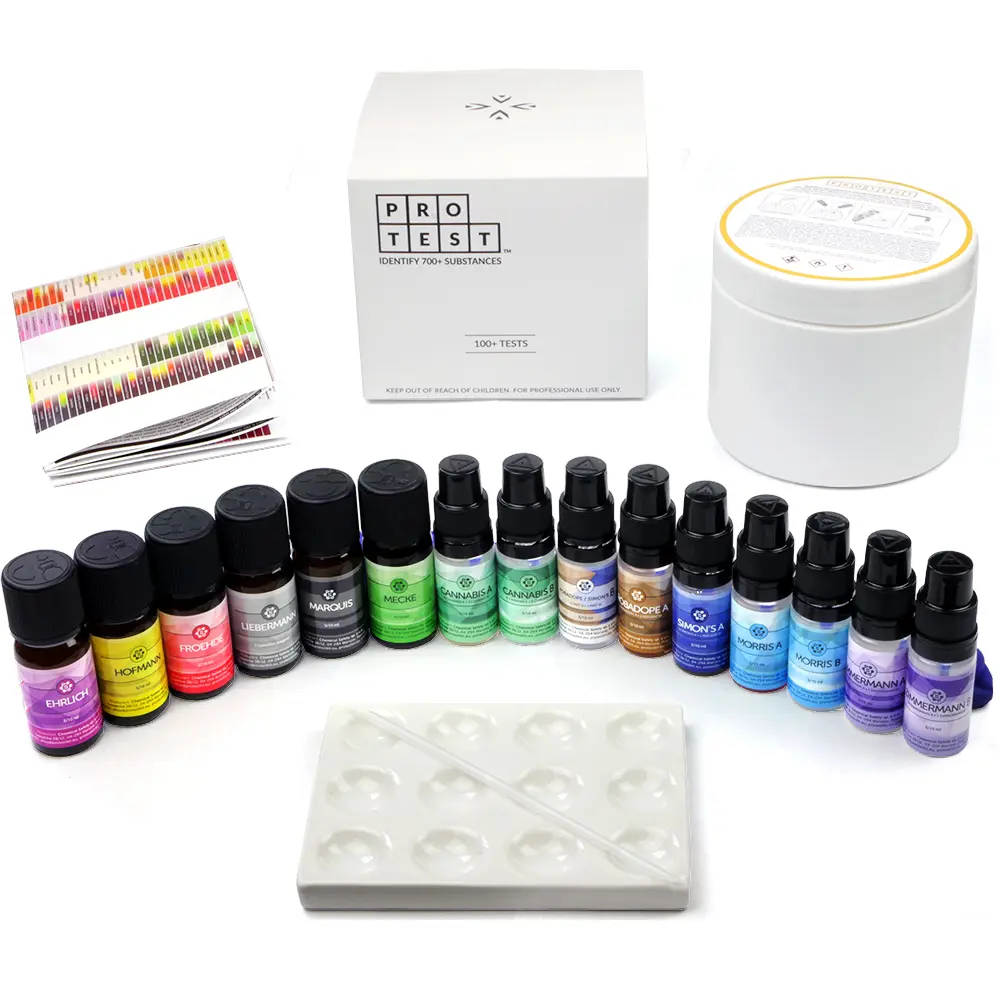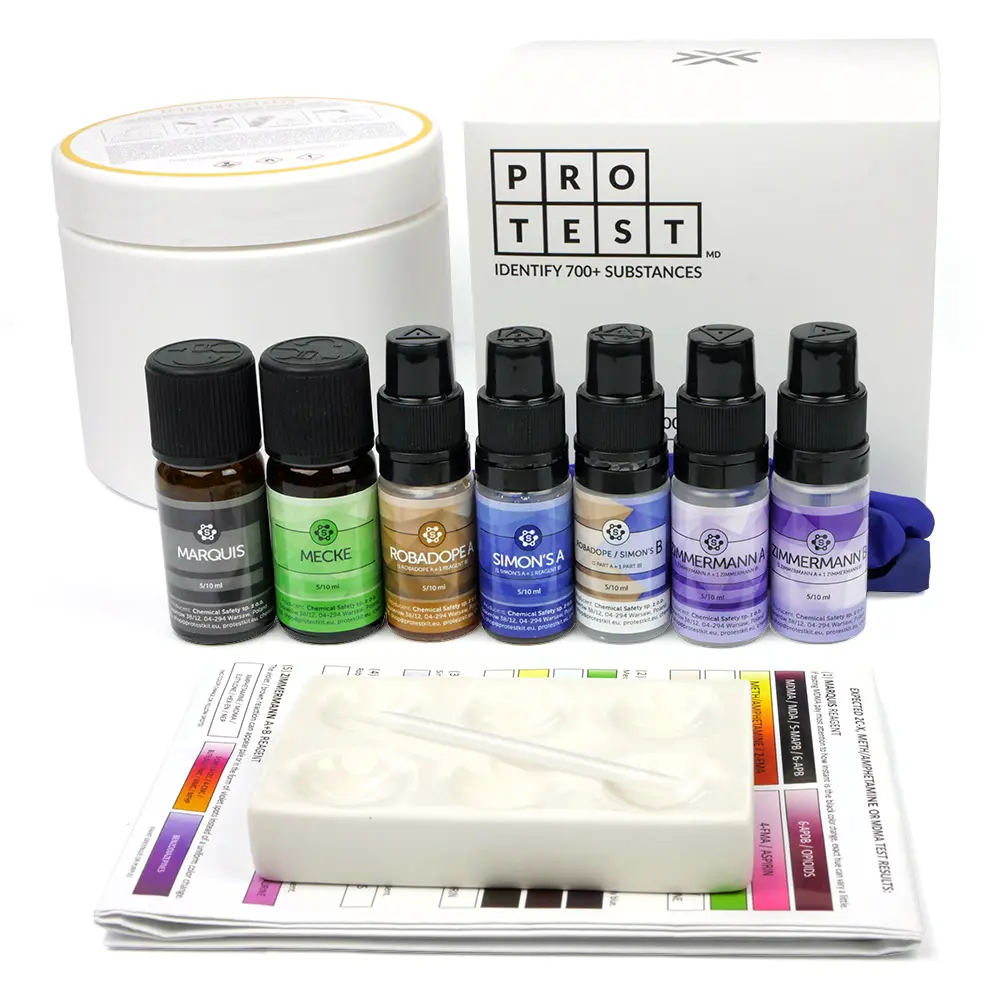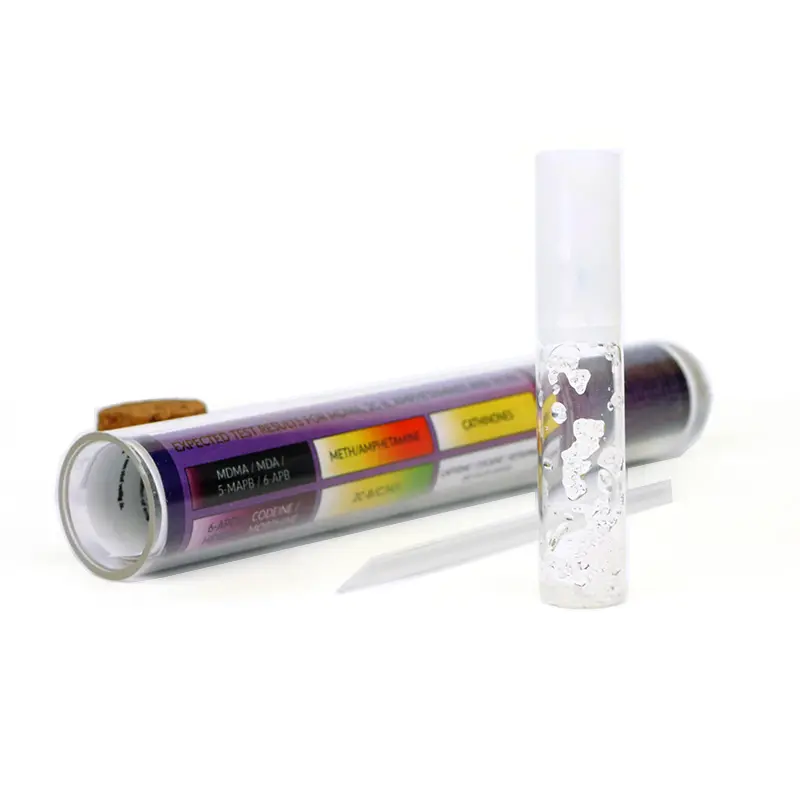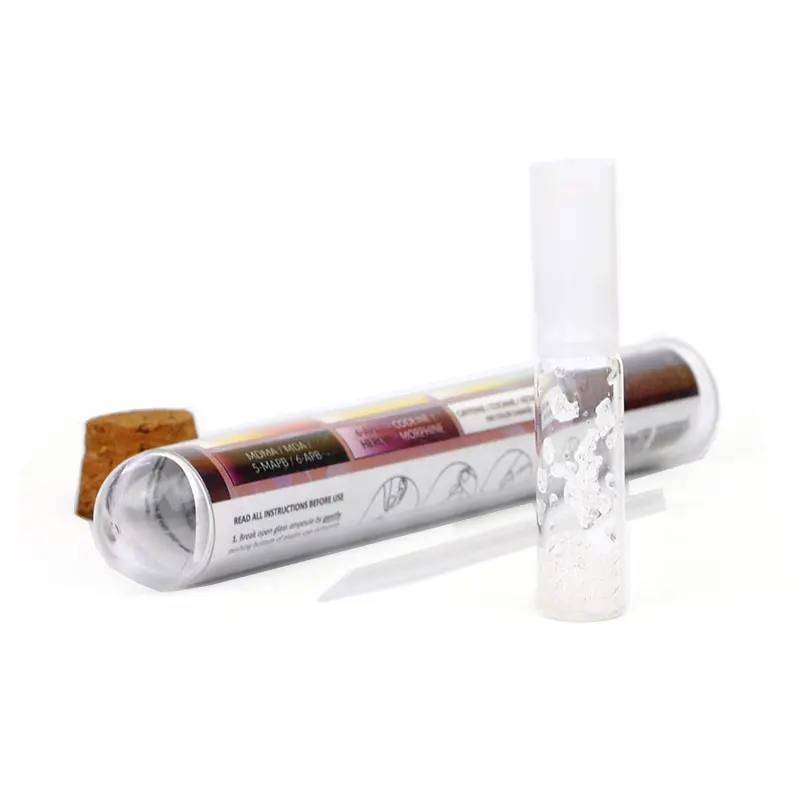What is Tuci (Tusi, Tucibi, Tusibi)?
Tuci, also known as „tusi”, „tucibi”, „tusibi” or „pink cocaine” is a mixture of substances that has nothing in common with neither 2C-B nor cocaine. This increasingly common party drug coctail originated in Colombia around the year 2020 and has since spread worldwide. The effects of Tusi are dangerous and at best unreliable, however that has not stopped it from gaining popularity.
How to test Tuci?
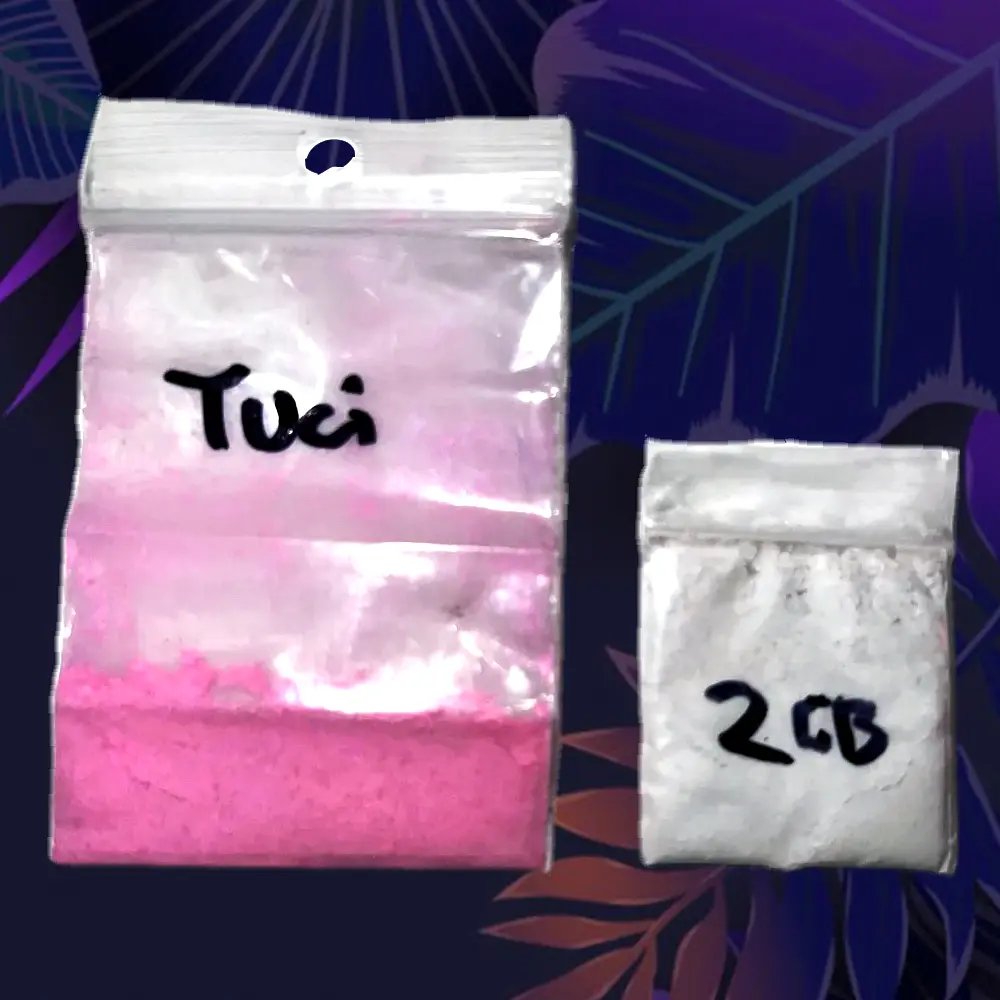
Tusi vs 2C-B
- Marquis indicates presence of MDMA, 2C-B and meth/amphetamine, among other compounds.
- Mecke serves as a reassurance of the initial Marquis reagent results. It can also detect various stimulants mixed in amphetamine, cocaine or ketamine.
- Robadope can confirm primary amines such as 2C-B, amphetamine, MDA, PMA or taurine.
- Simon’s can confirm secondary amines, such as MDMA, methamphetamine, PMMA, cathinones.
- Zimmermann can rule out presence of most cathinones, especially MMC and PVP derivatives.
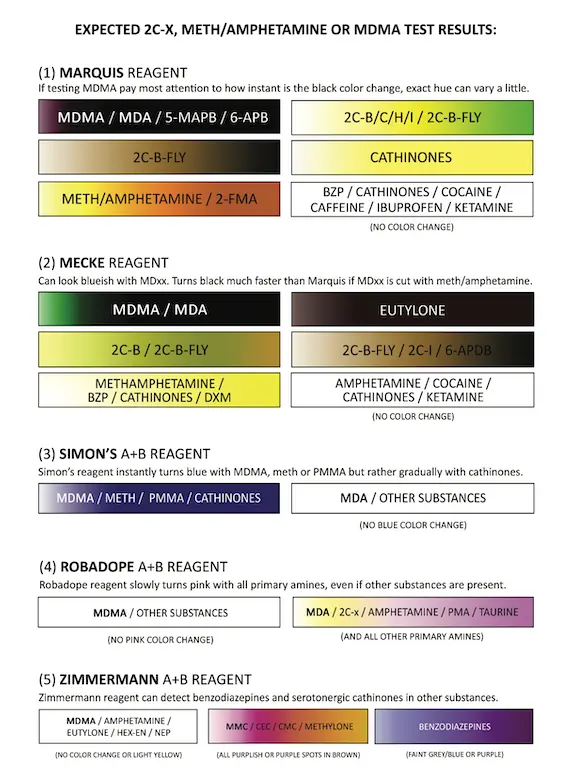
2C-B test kit chart
Is Tuci the same as 2C-B?
No. Unfortunately, despite confusingly similar name, Tuci or Tucibi isn’t even close to 2C-B.
Does “pink cocaine” contain cocaine?
No. Although often advertised as „pink cocaine”, Tusibi, just as it doesn’t contain 2C-B, also does not contain any cocaine.
As shown by numerous drug checking laboratories (to name a few sources: energycontrol.org, drugsdata.org) the most common ingredients of Tuci are:
- MDMA
- Ketamine
- Caffeine
Tusi is a random mixture of cheap drugs, with effects that hardly make sense for the following reasons:
- MDMA, is a strong serotonergic stimulant with main effects ranging from 4 to 6 hours. Mephedrone and derivative too, with added more intense dopamine oriented effects. Stimulants increase heart rate and blood pressure.
- Ketamine is a dissociative downer (depresant drug), with main effects lasting around 1 hour. Unlike most other depresants, it is known to slightly elevate blood pressure and heart rate. Mixing downers with stimulants reduces the expected psychoactive effects of each, while increasing the physical constraints.
- Caffeine is a weak stimulant, which does not add anything to psychoactive effects, but rather further increases heart rate and blood pressure.
In summary, mixing these drugs, especially in unknown ratios, is certain to increase unpleasant physical effects, while not contributing anything really desirable to the psychoactive effects. Especially redosing mixture of substances with significanly different lenght of effects can lead to a bad and dangerous experience.
Tuci can contain literally anything, even though the active components of the dubious pink powder are usually expected to be MDMA, ketamine and caffeine.
One of the common variants is, unsurprisingly, to further substitute components for even cheaper alternatives, usually a cathinone instead of MDMA. Either a mephedrone analog, such as 3-CMC, or a pentylone analog, like Eutylone or Cyputylone.
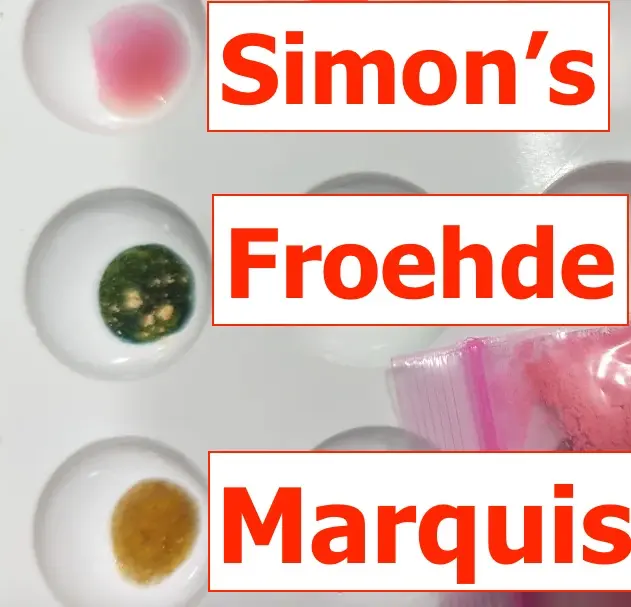
Reagent results indicating cyputylone in Tuci
Is reagent testing Tuci reliable?
Sadly, because ratios are completely random, reagent testing Tuci often can not give reliable information. Below we show several examples from drugsdata.org lab analysis service website.
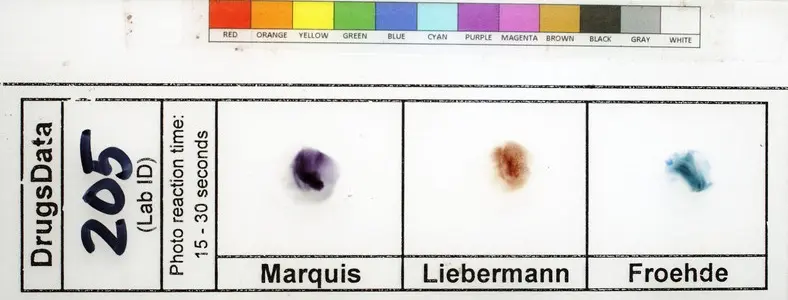
Tuci with ketamine and MDMA mixed in 1:1 ratio

Tuci with ketamine and MDMA mixed in 6:1 ratio
Is Tuci safe?
No, Tuci is not safe. At all cost do not ingest any pink powder. Do not let anyone encourage you to consume mystery drugs, be it Tusi, „crystal”, or any other ambiguously described substance. If you intend to use a psychoactive substance, learn about the risks, as well as how to reduce harm and get your substance in pure form (make sure of that using a reagent test kit, and preferably also a TLC purity test kit).
Tuci test kit
The best test kit for Tuci (Tusi, Tucibi, Tusibi) is PRO Test’s 2C-B Reagent Test Kit which includes reagents Marquis, Mecke Robadope, Simon’s and Zimmermann. It can reliably confirm presence of 2C-B, MDMA and help rule out most common cuts such as cathinones, meth/amphetamine and many other. To check for all possible cuts pair reagent tests with a TLC Purity Test Kit.
Recommended Tuci test kits:
A positive or negative test kit result does not indicate if a substance is safe. No substance is 100% safe.
